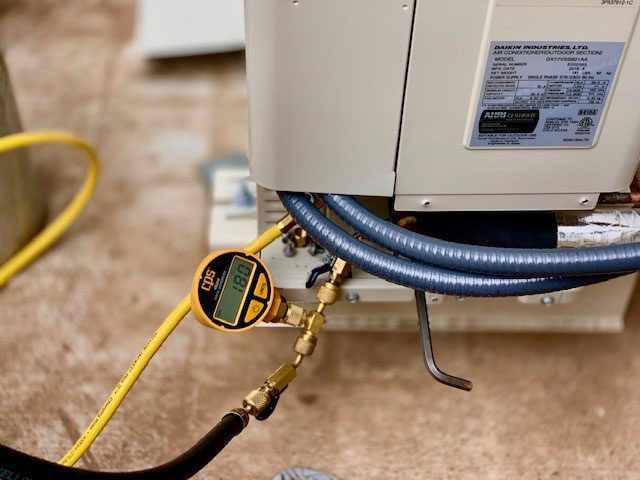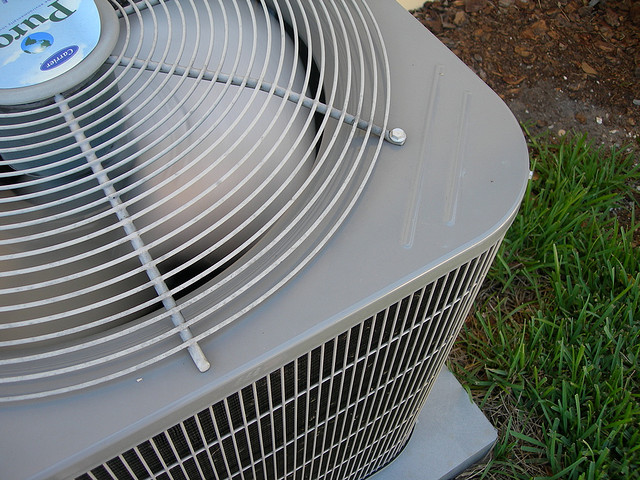
When Your Air Conditioner Freezes Up
When the scorching heat of summer arrives, we all rely heavily on our air conditioners to keep our homes cool and comfortable. But what happens when your air conditioner freezes up? Not only does a frozen AC stop working effectively, but it can also lead to further damage if not dealt with quickly. If you’re faced with a frozen air conditioner, don’t panic! There are several steps you can take to troubleshoot and resolve the issue before calling in a professional.
In this blog post, we’ll discuss the common causes of a frozen air conditioner, the signs to look for, and the steps you can take to fix the problem.
Understanding Why Air Conditioners Freeze Up
Air conditioners freeze up for a variety of reasons, but the main issue usually involves improper airflow or problems with refrigerant. Here’s a breakdown of some of the most common causes:
- Low Refrigerant Levels: Refrigerant is essential for the cooling process. If the refrigerant levels are too low, the evaporator coil can’t absorb enough heat from the air, causing it to freeze.
- Dirty Air Filter: When the air filter is clogged with dust and debris, it restricts airflow. This can lead to the evaporator coils getting too cold and freezing over.
- Dirty Coils: Over time, dust and dirt can accumulate on both the evaporator and condenser coils. If these coils get too dirty, they can’t effectively exchange heat, which can cause freezing.
- Thermostat Issues: A malfunctioning thermostat can cause the air conditioner to run too long or not shut off at the right time, causing the system to freeze.
- Blocked Vents: If the supply or return vents are obstructed by furniture or other items, air circulation becomes inadequate, which can cause the coils to freeze.
Signs Your Air Conditioner Is Freezing Up
There are several signs to look for that indicate your AC is freezing up. These include:
- No Cool Air: The most obvious sign is that your air conditioner isn’t blowing cool air, or the air that is coming out feels warm.
- Ice on the Coils or Refrigerant Lines: If you see frost or ice buildup on the coils inside the unit or on the refrigerant lines running from the unit to the house, your AC is frozen.
- Unusual Noises: A hissing or gurgling sound coming from your air conditioner can indicate a refrigerant problem, while a buzzing sound may point to an issue with the compressor.
- Increased Humidity: A frozen AC can also struggle to regulate humidity levels, which may make your home feel muggy or sticky even when the temperature is low.
What to Do When Your Air Conditioner Freezes Up
If you notice any of the signs above, follow these steps to help resolve the issue.
1. Turn Off the Air Conditioner
The first thing you should do is turn off your air conditioner. Continuing to run the AC while it is frozen can cause further damage to the system. This includes damaging the compressor, which can be an expensive repair.
Once the system is turned off, let the air conditioner defrost. This can take anywhere from a few hours to a full day, depending on the severity of the freeze. If you need to cool the space in the meantime, you can use fans or open windows to help with ventilation.
2. Inspect and Replace the Air Filter
A clogged air filter is one of the most common causes of frozen air conditioners. The filter helps keep dust and debris out of the system, but if it becomes dirty or clogged, it can restrict airflow and cause the evaporator coils to freeze.
Inspect the air filter, and if it’s dirty or clogged, replace it with a new one. Be sure to check the manufacturer’s instructions for the correct type of filter for your AC unit. If your air filter is relatively clean, check to ensure it is properly installed, as an improperly placed filter can also restrict airflow.
3. Check for Blocked Vents and Ductwork
Obstructed vents and ductwork can reduce the airflow necessary to keep the air conditioner functioning properly. Go around the room and check all the supply and return vents. Move any furniture, curtains, or objects that may be blocking the airflow.
If the ductwork is easily accessible, you can also inspect it for blockages or leaks. Poor ductwork can also contribute to insufficient airflow, causing the system to freeze.
4. Inspect the Coils for Dirt and Debris
Dirt or debris buildup on the evaporator and condenser coils can cause them to freeze. Use a soft brush or a vacuum cleaner with a brush attachment to gently clean the coils and remove any dust or debris. Be sure to turn off the unit before cleaning the coils.
If you’re uncomfortable cleaning the coils yourself, you can hire a professional HVAC technician to do it for you.
5. Check the Refrigerant Levels
Low refrigerant levels are a common cause of frozen air conditioners. If you suspect this is the issue, you should contact a professional HVAC technician to inspect and refill the refrigerant. Refrigerant leaks can also cause the levels to drop, and this needs to be repaired by a licensed technician.
It’s essential not to attempt to refill the refrigerant yourself, as handling refrigerant improperly can be dangerous and may damage your system further.

6. Check the Thermostat Settings
Ensure that the thermostat is functioning correctly. If it is set too low, it can cause the air conditioner to run continuously, which may result in freezing. Adjust the temperature to a higher setting (around 75°F to 78°F) and monitor the system for any signs of improvement.
If you suspect a faulty thermostat, it may need to be recalibrated or replaced. This is a job best left to a professional technician.
7. Let the Unit Thaw Completely
If you’ve addressed the above issues, allow the unit to thaw completely before turning it back on. This can take several hours, and attempting to run the system before it’s fully thawed may cause more ice to form.
8. Turn the AC Back On and Monitor
After the unit has thawed, turn it back on and monitor its performance. Check if the airflow has returned to normal and if the temperature is being properly regulated. If the AC still isn’t functioning as it should, it may be time to call in a professional technician to diagnose and fix the issue.
When to Call a Professional
If you’ve followed these steps and your air conditioner continues to freeze up, it’s time to contact a professional HVAC technician. They can accurately diagnose and fix any underlying issues, such as refrigerant leaks, compressor failure, or complex electrical problems.
Ignoring a frozen air conditioner can lead to expensive repairs down the line, so it’s better to address the problem sooner rather than later. Regular maintenance, such as aircon servicing Yishun, can help prevent issues like freezing by ensuring proper airflow and refrigerant levels. Scheduling timely servicing can extend the lifespan of your unit and keep it running efficiently, saving you money in the long run.
Conclusion
A frozen air conditioner can be frustrating, but it’s a problem that can often be fixed with a little troubleshooting. By following these steps, you can identify the root cause of the freezing and take the necessary actions to prevent it from happening again. Regular maintenance, including cleaning the coils, changing the air filter, and checking airflow, will help keep your air conditioner running smoothly throughout the year. If in doubt, don’t hesitate to call a professional to ensure your AC is in good working order.




